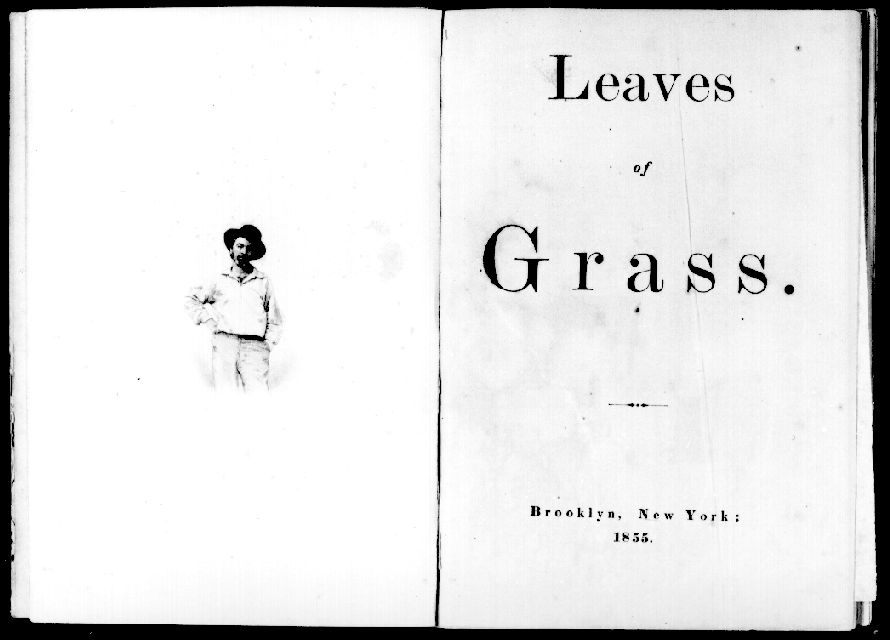One hundred fifty years ago today, Walt Whitman self-published the first edition of Leaves of Grass, a book that one could easily claim doomed the School of Quietude to the dustbin of history, or which, at the very least, revealed its love of Anglophiliac form to be an aberration born of the nation’s particular narrative. In the following poem, untitled in the first edition, tho later called “
Suddenly out of its stale and drowsy lair, the lair of slaves,
Like lightning
Its feet upon the ashes and the rags . . . Its hands tight to the throat of kings.
O hope and faith! O aching close of lives! O many a sickened heart!
Turn back unto this day, and make yourself afresh.
And you, paid to defile the People . . . . you liars mark:
Not for numberless agonies, murders, lusts,
For court thieving in its manifold mean forms,
Worming from his simplicity the poor man’s wages’
For many a promise sworn by royal lips, And broken, and laughed at in the breaking,
Then in their power not for all these did the blows strike of personal revenge . . or the heads of the nobles fall;
The People scorned the ferocity of kings.
But the sweetness of mercy brewed bitter destruction, and the frightened rulers come back:
Each comes in state with his train . . . . hangman, priest and tax-gatherer . . . . soldier, lawyer, jailer and sycophant.
Yet behind all, lo, a Shape,
Vague as the night, draped interminably, head front and form in scarlet folds,
Whose face and eyes none may see,
Out of its robes only this . . . . the red robes, lifted by the arm,
One finger pointed high over the top, like the head of a snake appears.
Meanwhile corpses lie in new-made graves . . . . bloody corpses of young men:
The rope of the gibbet hangs heavily . . . . the bullets of princes are flying . . . . the creatures of power laugh aloud,
And all these things bear fruits . . . . and they are good.
Those corpses of young men,
Those martyrs that hang from the gibbets . . . those hearts pierced by the gray lead,
Cold and motionless as they seem . . live elsewhere with unslaughter’d vitality.
They live in other young men, O kings,
They live in brothers, again ready to defy you:
They were purified by death . . . . They were taught and exalted.
Not a grave of the murdered for freedom but grows seed for freedom . . . . in its turn to bear seed,
Which the winds carry afar and re-sow, and the rains and the snows nourish.
Not a disembodied spirit can the weapons of tyrants let loose,
But it stalks invisibly over the earth . . whispering counseling cautioning
Is the house shut? Is the master away?
Nevertheless be ready . . . . be not weary of watching,
He will soon return . . . . his messengers come anon.
I regret that the






